AI-powered home appliances in 2025: Your questions answered
Fridges with cameras that recognise your food, ovens which scan your meal and set the time and temperature to cook, and vacuum bots with cameras that check on your pets. Welcome to the world of AI. But how much do we need and how safe is it?
Imagine being at a meeting and you get a notification on your phone that your fridge door is open.
With no one meant to be home, you wonder whether the pooch is somehow trying to raid the leftover chicken.
From your phone you send your smart robotic vacuum cleaner with a camera on patrol to actually find your son has returned home from uni early.
Welcome to the world of the smart home, where your fridge can scan items as you load them in and you can put a use-by date to minimise food wastage.
Using voice command or a touch screen, you can call up recipes on the fridge display using the ingredients about to go past their prime.
After preparing the food, you can put it in your smart oven, where your dish will be scanned and the recommended temperature and time set.
After the meal, you put your dishes in the dishwasher which scans the load and determines what how much water to use and how hot it needs to be.
Watching your smart TV after dinner, you get a notification that your washing and dryer has finished the load, so you can put on another and schedule it for the next day, using the benefits of your solar power.
As you leave for work the next time, your bots know it’s time to get cleaning the house.
Companies like Samsung have been spruiking the idea of an AI powered home where appliances talk to each other and can be controlled from any of their screens, or via your phone for years.
In the past couple of years, we’ve seen more of the dreams revealed in tech shows coming to life.
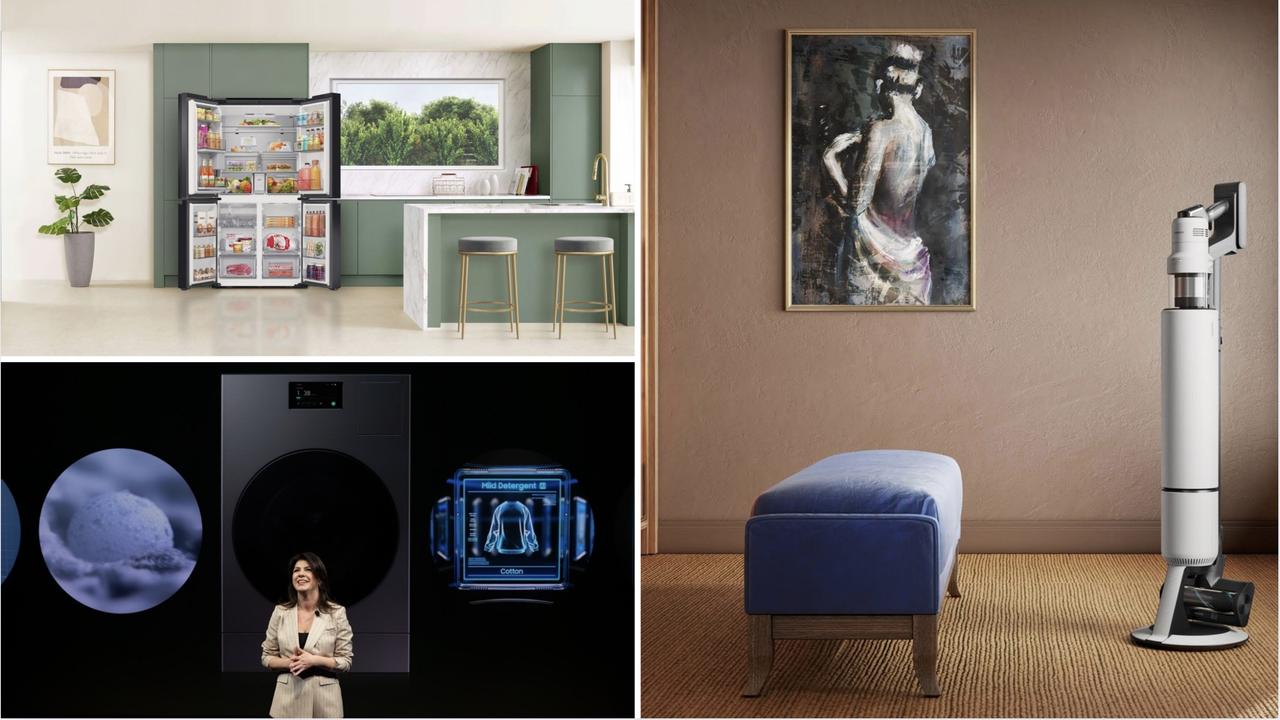
In 2016, Samsung unveiled the Family Hub Refrigerator with a big beautiful screen where families could share calendars, reminders, photos, drawings, voice memos as well as see recipes for meals.
At the time, I thought it was pretty cool but wondered how many people would actually use such features.
The advancement of AI has left some asking what’s the point – and more importantly what are the risks of being hacked?
Security around AI is something that companies like Samsung and Apple say they are taking very seriously, beefing up protection, to give greater peace of mind.
Samsung’s 2025 Bespoke AI home appliances range feature screens everywhere, new fridges with enhanced connectivity and AI, as well as the Bespoke AI Jet Ultra, which is said to be the world’s most powerful cordless stick vacuum cleaner with 400W of suction power.
There’s a new 809L Bespoke AI Family Hub French Door Refrigerator and 615L AI Home Side-by-Side Refrigerator.
The new AI powered appliances don’t come cheaply, but as we have seen in years gone by, as new models come out, prices of previous models are often slashed, providing a good ‘sweet spot’ for those looking for more bang for buck.
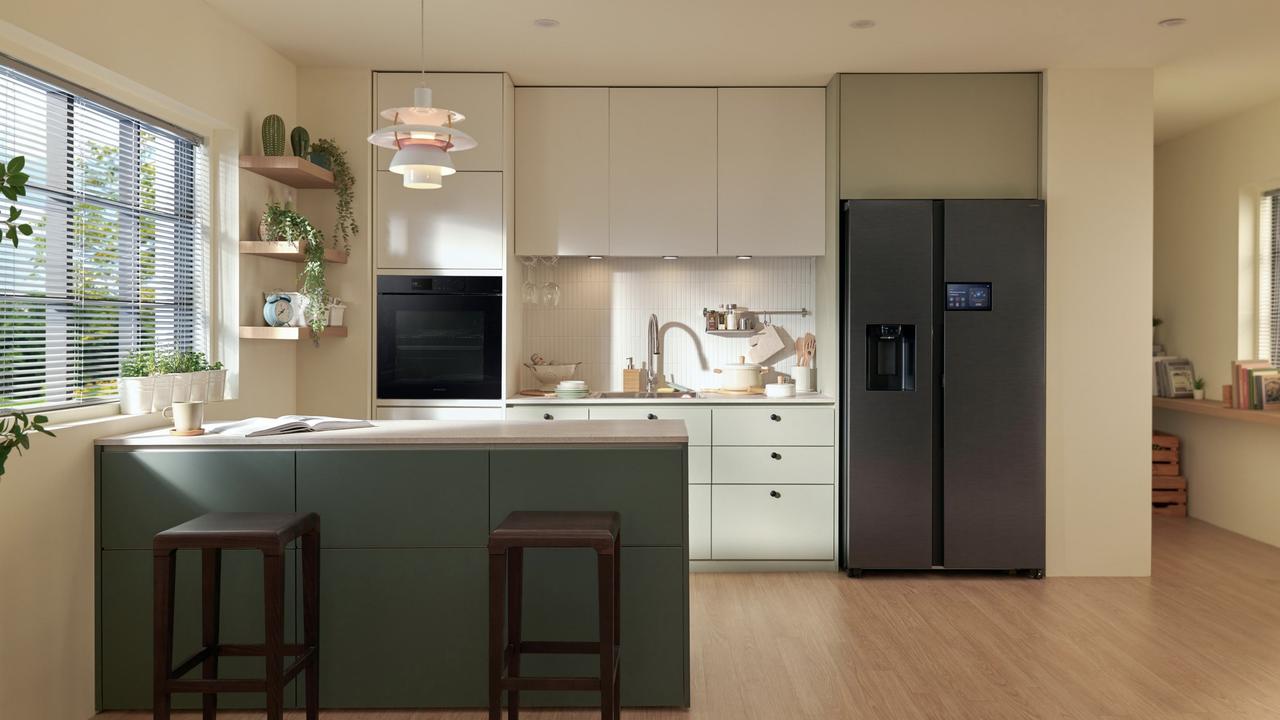
Jeong Seung Moon, EVP and Head of the R&D Team for Digital Appliances Business at Samsung Electronics, said AI appliances offered convenience, saved people time and ultimately meant lower energy costs.
Less time on laborious and mundane chores, means more time on meaningful things.
We put a series of questions to Moon about AI, particularly for the Australian market
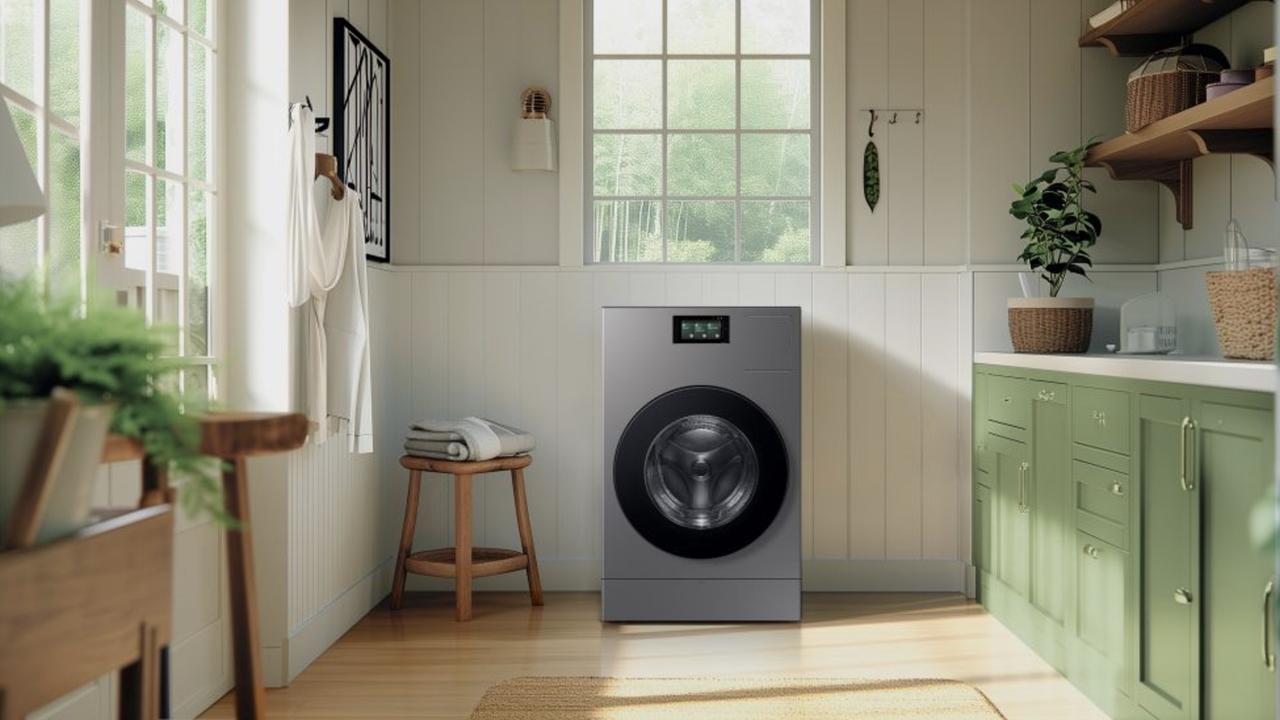
How does Samsung differentiate its AI-powered home appliances from those of competitors?
The newly launched products this year feature expanded AI Home screens in various sizes, allowing consumers to intuitively access and use AI appliance functions.
Bixby has been upgraded with LLM (Large Languate Model) technology, enabling it to understand consumer needs more naturally and recognise voices to provide personalised experiences.
What are the features that Australian buyers are really looking for?
Australian consumers generally show a higher preference for AI home appliances, prioritising quality and energy efficiency. Additionally, key components of refrigerators and washing machines, such as the Digital Inverter Compressor and Digital Inverter Motor, come with a 20-year warranty. We also offer energy-efficient models and support SmartThings Energy service, catering to Australian consumer preferences in multiple ways.
How important is it that AI becomes seamless and easy to use?
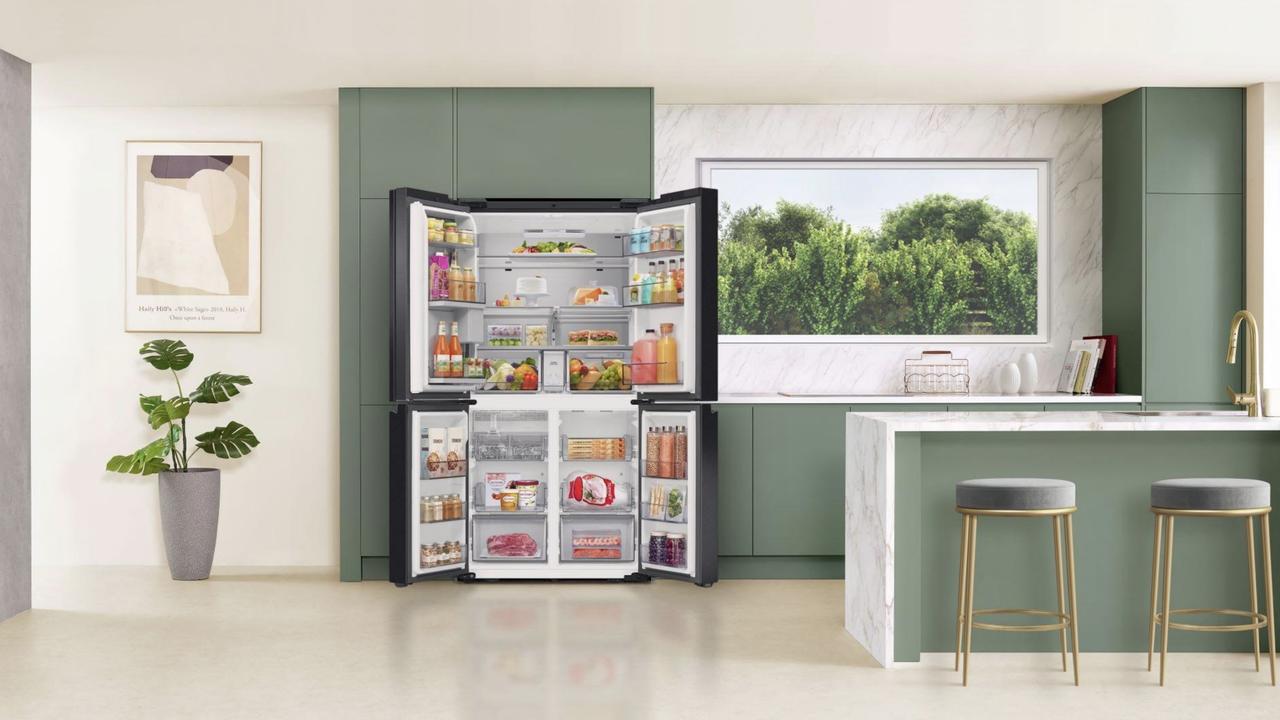
Housework is often not completed with a single appliance, but usually home appliances are scattered throughout various rooms in the house. So, when performing complex household chores through multiple appliances, it needs user’s efforts.
Therefore, the AI functions of each appliance need to be connected to achieve synergy, and the connection should be easy for consumers to use more conveniently.
Take cooking for example — completing a meal requires knowing what ingredients are in the fridge, deciding on a recipe, setting the oven’s temperature and time, and monitoring the cooking process. With AI integration, users can get suggested recipes based on ingredients that are about to expire in the refrigerator and automatically set the oven’s temperature and cooking time based on the recipe.
When it comes to smart fridges, what are the AI features that consumers are most excited about?
In 2024, we introduced the model with AI Family Hub+ screen, along with AI Vision Inside feature. Using an internal camera, the refrigerator can record food items taken in/out, and automatically recognises up to 34 types of fresh food items. Also, users can manually update their food list for better food management.
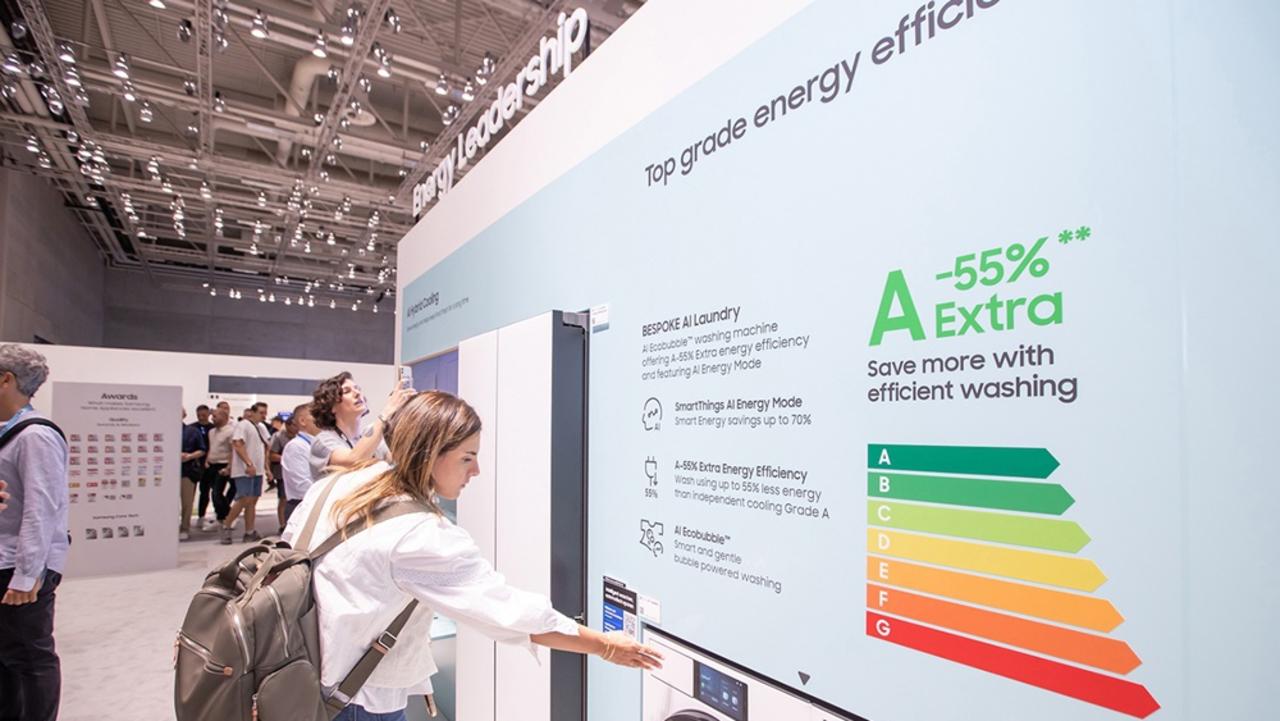
Energy costs are a huge concern in Australia. In what ways does AI contribute to energy efficiency and sustainability in Samsung’s home appliances?
Samsung continuously seeks ways to improve energy efficiency, and AI plays a key role in this effort through features like SmartThings Energy’s AI Energy Mode. By connecting appliances to SmartThings, consumers can monitor energy usage for each device. Also, users can set the AI Energy Mode to be operated based on their set budget and consumption targets, helping to reduce energy use.
We’ve seen the growth of robotic vacuums and other cleaning devices. Where do you think that is heading?
This year, we have introduced the world’s most powerful cordless stick vacuum cleaner (with up to 400W of suction power) for those who are looking for the strong suction power. The upgraded AI Cleaning Mode 2.0 now recognises a wider range of cleaning environment, automatically adjusting settings for optimal cleaning.
Additionally, the HEPA Filtration system ensures even the fine dust particles are effectively captured.
We’re also planning to launch a vacuum and mop robot cleaner with improved object recognition, which can detect even transparent liquids, reducing user hassles.
The new robot vacuum will be able to notify users of areas that were difficult to reach, so that they can ensure thorough cleaning in that area.
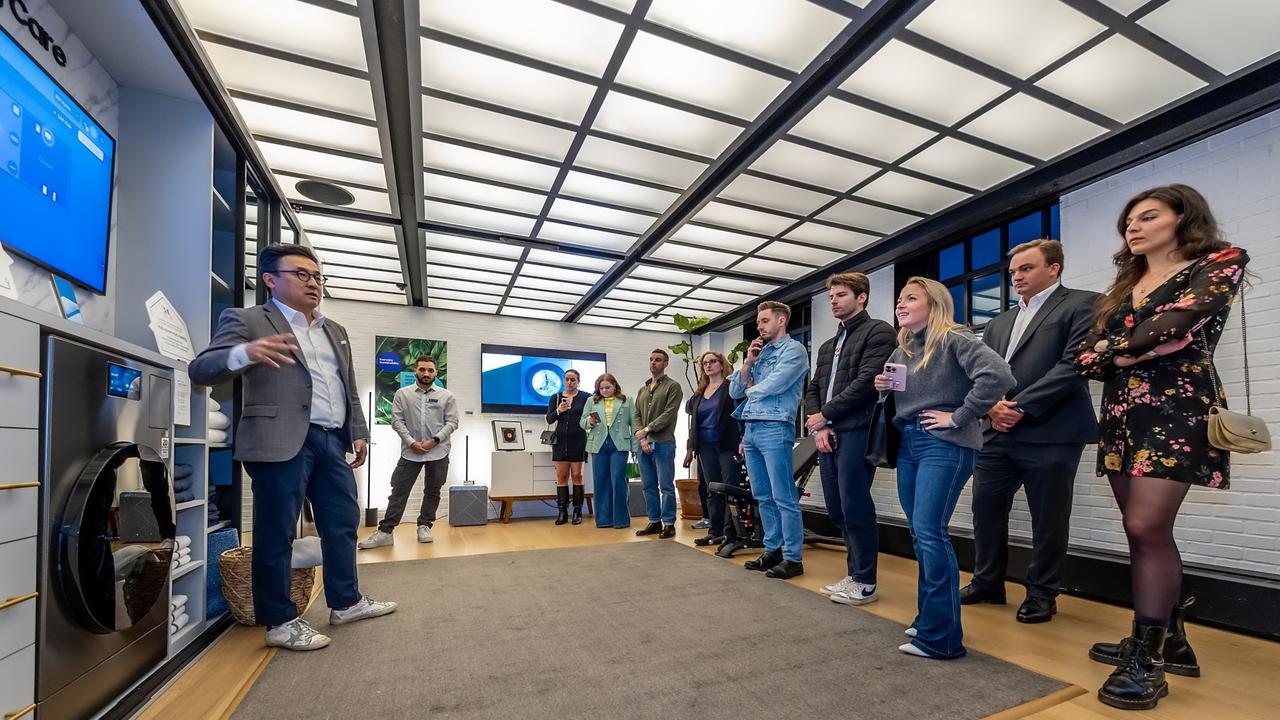
What about integration between devices? How does that work?
It’s based on the foundation of the SmartThings, Samsung’s unique ecosystem. Most of this year’s screen appliances come with a built-in SmartThings Hub – also compatible to Zigbee or Matter – allowing them to function as control hubs for the home and removing the need to purchase a separate hub device.
Samsung supports seamless smart home experiences by enabling connectivity not only with Bespoke AI appliances but also with third-party appliances and small devices certified under Works with SmartThings.
As the chair of the Home Connectivity Alliance (HCA), we’re continuing to work on expanding compatibility.
Are people using their TVs and screens on TV to control their AI devices or is it mostly via smartphone apps?
Generally, it appears that controlling home appliances via mobile devices is more common. Meanwhile, according to internal usage survey results, the proportion of using smartphone or voice functions to control AI appliances has increased to a similar level as using traditional controllers such as remote controls and set buttons.
Since our appliances can be easily controlled through SmartThings connectivity on mobile or TV, such cases are expected to increase.
Where do you see it going in the next 10 years? Will we have robots in our homes picking up the washing or cleaning up after the dog?
Consumers increasingly expect personalised services and seamless automation in their home appliances. In the future, we can expect that home appliances will not only recognise who is using them but also autonomously optimise each user’s settings and manage maintenance, in response to these needs.
AI will be instrumental in making these advancements a reality.
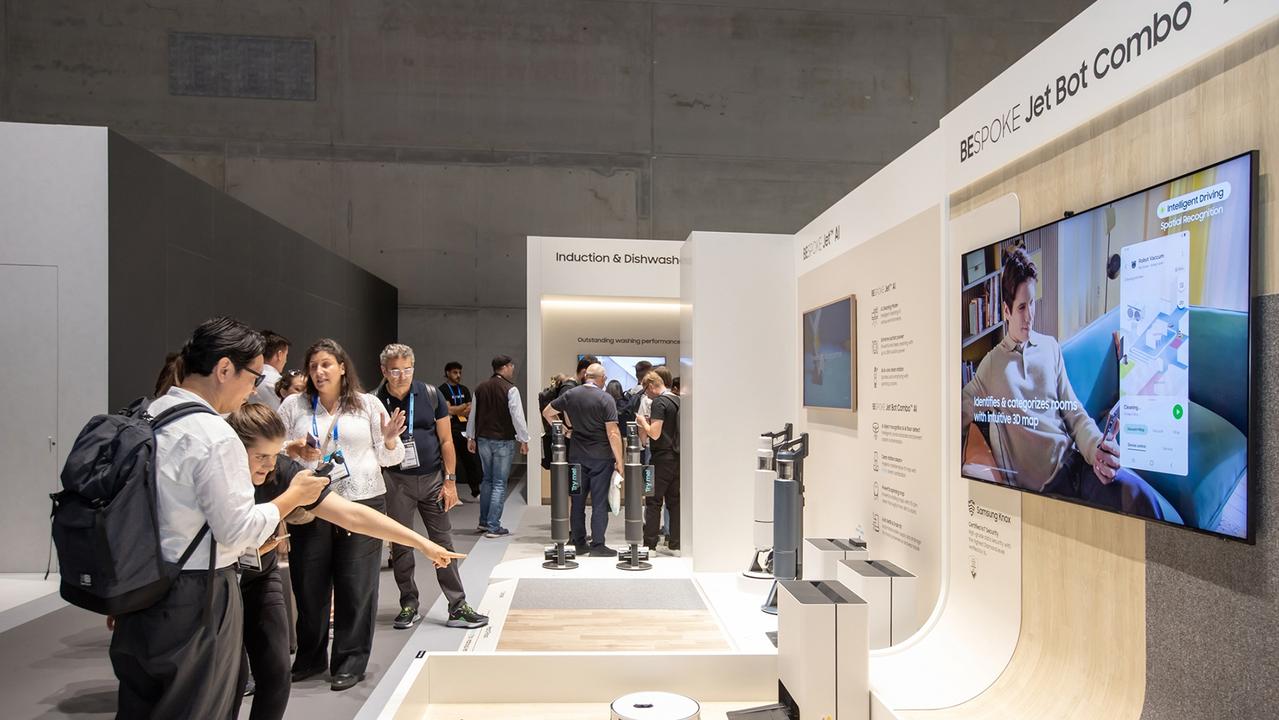
Samsung is committed to expanding AI capabilities across its home appliance line-up, continuously building a foundation for growth. We will pay close attention to future trends and consumer needs to integrate with our products to enhance everyday life.
Security remains a major concern for connected home devices. How is Samsung addressing these concerns?
While the digitalisation of home appliances has greatly enhanced convenience, it has also increased concerns over data security. This is particularly relevant for devices like robot vacuums, which are equipped with cameras and move throughout the home.
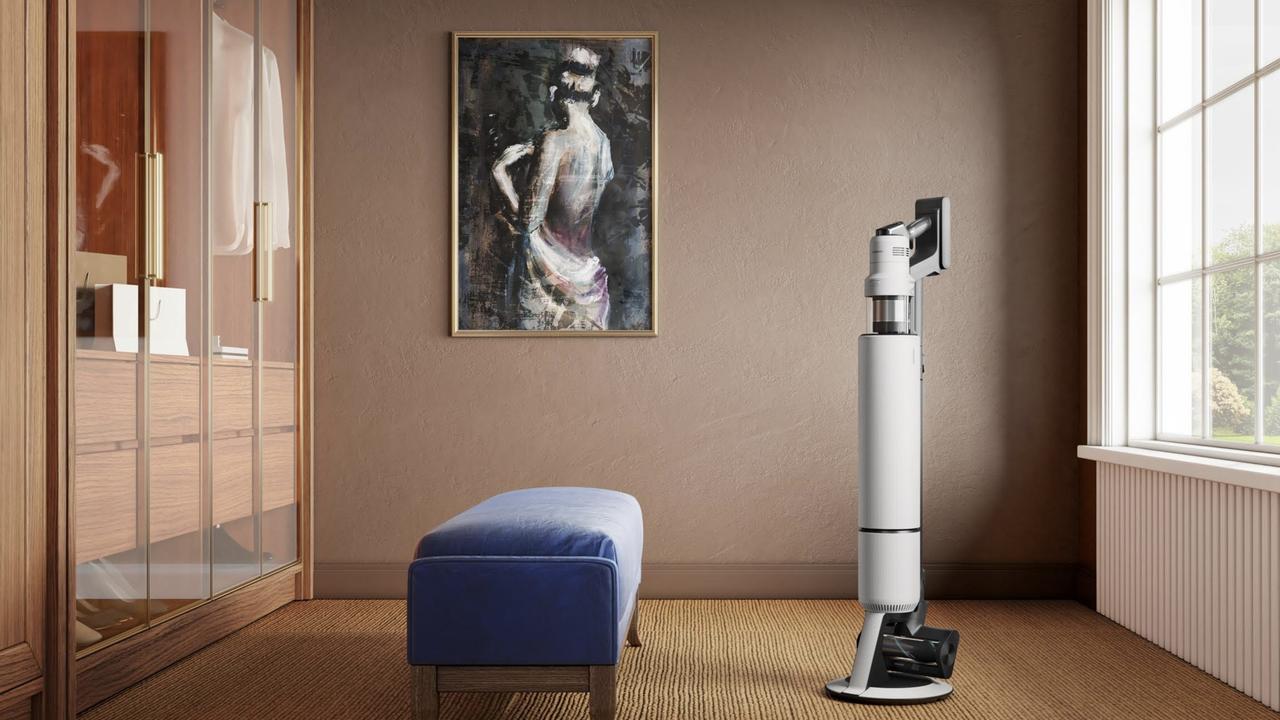
To address these concerns, Samsung has implemented its proprietary Knox security system across all Wi-Fi-enabled appliances.
This year, we have reinforced security with Knox Matrix Trust Chain, leveraging block chain technology to create a self-monitoring environment among connected devices. Additionally, Samsung has introduced Knox Vault, which stores sensitive data such as passwords and authentication information on a dedicated security chip. Additionally, by adopting Post-Quantum Cryptography (PQC), we are also proactively preparing for future cybersecurity threats.
SOME OF SAMSUNG’S NEW AI APPLIANCE RANGE
809L BESPOKE AI Family Hub French Door Refrigerator retails from $6,999.00
615L AI Home Side By Side Refrigerator is from $3,299
BESPOKE AI Jet Ultra Stick Vacuum from $1,699.00
More Coverage
Originally published as AI-powered home appliances in 2025: Your questions answered





